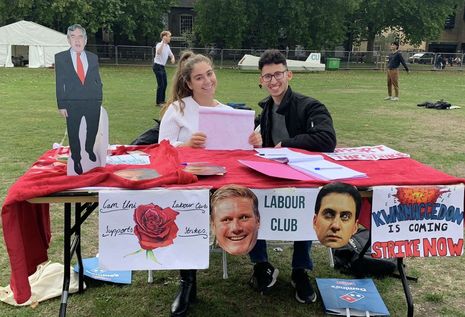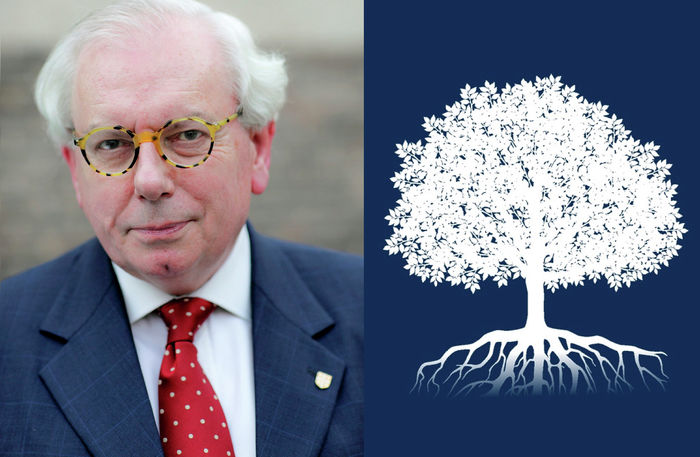Reflections on a year in student politics
“What even is ‘student politics’?” wonders Katie Heggs, after spending a year on its frontlines

A week or so ago I came across an article about Suella Braverman, who, twenty-three years prior, allegedly attempted to buy votes in the Cambridge University Conservative Association elections. This coincided with the Oxford Union being plastered across tabloid front covers and the Oxford SU being nitpicked at by Telegraph columnists. I’ve since been reliably informed that the story about Braverman was in fact false (not that this absolves her of crimes in the world of real politics) but I was intrigued by the cacophony of “student politics”-related news stories on my Twitter timeline, and their (brief) relevance to the big bad world outside the Cambridge bubble. I decided to reflect on my year in student politics. The good, the bad, and the ugly.
What even is “student politics”? A live action role play of the commons? Westminster-lite? It was not something I had remotely considered as “for me” before another Churchill his-pol invited me along to a Labour Club event. It was like I had opened the door into another dimension.
“I saw more MPs than members of my family last term”
“Student politics”. All the different party-related societies with their pub socials and “policy events”. The villains, the heroes, the established names a fresher like me was in slight awe of. My first tentative steps into the faux establishment started here, with a few months of naïvely arguing about pragmatism in smoking areas before realising I wasn’t changing anyone’s mind. I mean, we have all the “institutions” necessary for a pretty comprehensive roleplay. The press – Varsity, the Tab, TCS – who occasionally report on the wannabe-politicos’ scandals and successes, and the private members’ club where many of their factional battles play out. There are even publicity opportunities for budding candidates in podcast form (don’t worry David Quan, I am a big fan) and detailed, fairly extensive social media campaigns. It’s exciting, as a fresher. An adult playground for regular The Rest is Politics listeners and those who keenly await Question Time episodes. And none of it really matters.
It’s hard to defend the world I spend my spare time in when “How’s the Machiavellian-ism?” is the text I receive most frequently from family members who have received a half baked attempt at an explanation. I saw more MPs than members of my family last term, so sometimes I don’t even try. All the characters and “plot lines” change every two seconds (through graduations, elections (lost or won), scheming, disillusionment and just plain boredom). My dad has always maintained that I should never go into politics because “everyone hates politicians”. I think he has a point.
“Sometimes people just have too much fucking spare time.”
One moment I was applying to a “good university” to have marginally better job prospects and the next I was sipping port and discussing “campaign strategy” for something I genuinely thought was just a debating society. So was I naïve or just stupid? I’ve run the Labour society for two terms now, and I don’t regret it. I’ve met amazing people and genuine friends, immersed myself in the party and debated topics I’ve always cared about, whilst extending my knowledge on topics I barely knew. But simultaneously, I am ready to be done with student politics. Because, most of the time, it is a pretty hollow concept.
I care about the Labour Party. I care about my society, those I have met within it and the events we hold and the discourse generated. But God I am ready for a break from the constant drama. Over the Christmas holidays I would look at the anonymous comments posted about me on the Union’s short-lived confessions page “Unionbridge” while on my break from the nine-hour shifts required for me to afford to be at university in the first place. I think that is the best anecdote I have for student politics at Cambridge. Sometimes people just have too much fucking spare time.
Little Suella Braverman went on to do some not so little (and not so great) things. But someone took time out of their day of lectures and supervisions to fabricate a story about her trying to buy votes in a student society election. In a response published in Varsity’s next edition she fiercely denies the claim, pointing out that the story was sourced from CULA activists and that the claim was “ludicrous” as she was standing unopposed. People have used the article to suggest, rather comically, that she hasn’t really changed. I did, also, think this was very funny until I learnt it was false. Now I think it presents a rather macabre metaphor for student politics in general.
Vote buying is morally dubious – yes – but does it have an impact on the wider world like her small boats policy? Like breaching the ministerial code? Like a defence of the Rwanda plan? After my time as co-chair ends I intend to keep attending CULC, helping campaign as well as chatting, debating, and downing pints. Discussing and working towards a future Labour government is important to me, after all, and CULC has been a huge part of my university experience. But I won’t miss student politics more broadly – the hushed conversations, back-stabbery and constant (and often unnecessary) stress.
I look forward to seeing what some of my peers do in government in years to come. But from next term onwards, and looking towards my future career, I think I might just take up knitting and enjoy the drama from the sidelines.
 News / Hundreds of Cambridge academics demand vote on fate of vet course20 February 2026
News / Hundreds of Cambridge academics demand vote on fate of vet course20 February 2026 News / Judge Business School advisor resigns over Epstein and Andrew links18 February 2026
News / Judge Business School advisor resigns over Epstein and Andrew links18 February 2026 News / Petition demands University reverse decision on vegan menu20 February 2026
News / Petition demands University reverse decision on vegan menu20 February 2026 News / CUCA members attend Reform rally in London20 February 2026
News / CUCA members attend Reform rally in London20 February 2026 News / Caius students fail to pass Pride flag proposal20 February 2026
News / Caius students fail to pass Pride flag proposal20 February 2026










